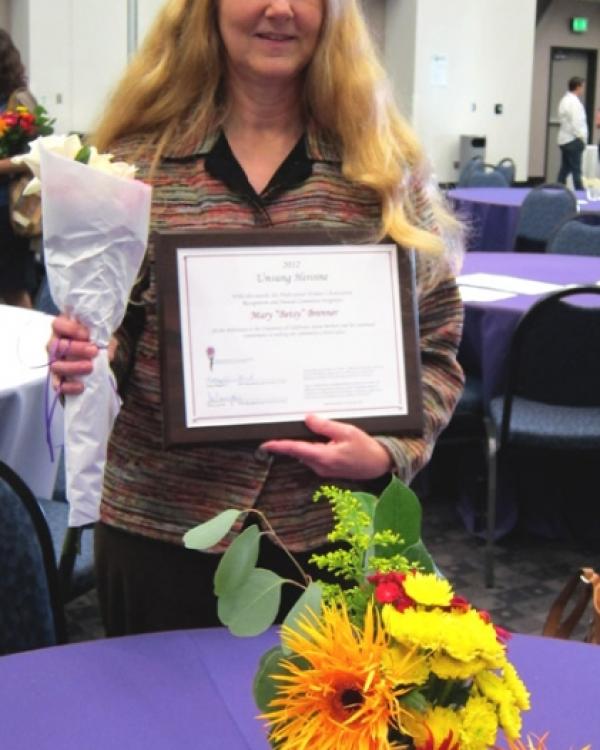
Mary Betsy Brenner, Professor and Chair of the Department of Education at UC Santa Barbara’s Gevirtz School, was named a 2012 Unsung Heroine by the UCSB Professional Women’s Association (PWA). The purpose of the award is to recognize special women who may not make headlines, but who make a positive impact to the campus by going above and beyond in contributions to their job, co-workers, campus, or community.
The nomination from her colleagues Richard Durán and Dorothy Chun in the Department of Education in part read: “Betsy represents the best of UCSB…. While she is low-key in how she presents herself, her actions and contributions are noticed and appreciated widely in the day-to-day world of our activities. Betsy’s philanthropic and departmental activities are evidence of selflessness and generosity that have had a tremendous impact on everyone in our department, from students to faculty to staff, and to many other in our community and, indeed, the world.”
Professor Mary Betsy Brenner did her graduate work in Anthropology at UC Irvine. Her dissertation research looked at how the western type schools in Liberia incorporated and conflicted with the local culture in both teaching methods and mathematical topics. After completing her Ph.D., she worked at the Kamehameha Early Education Program in Hawaii. After Hawaii, Brenner taught in the SESAME program at UC Berkeley and continued her research in Liberia on the differences between modern and traditional forms of education. Since coming to UCSB in 1991, Brenner has been examining how mathematics can be taught more effectively, for diverse groups of learners including English language learners, Native Alaskans, students in various Asian nations and Micronesian students. She has also been working with several different after school programs (a computer club at the Boys and Girls Club and the Isla Vista Teen Center) to understand better how different kinds of learning environments can enhance student learning. In addition to her ongoing research work in Liberia, she has maintained a connection with the education system in the country by supporting an elementary school that began during the civil war, helping a number of students to attend high school and college and doing some professional development with teachers. Her primary teaching responsibilities are in the areas of qualitative methodology, educational anthropology, and mathematics education.